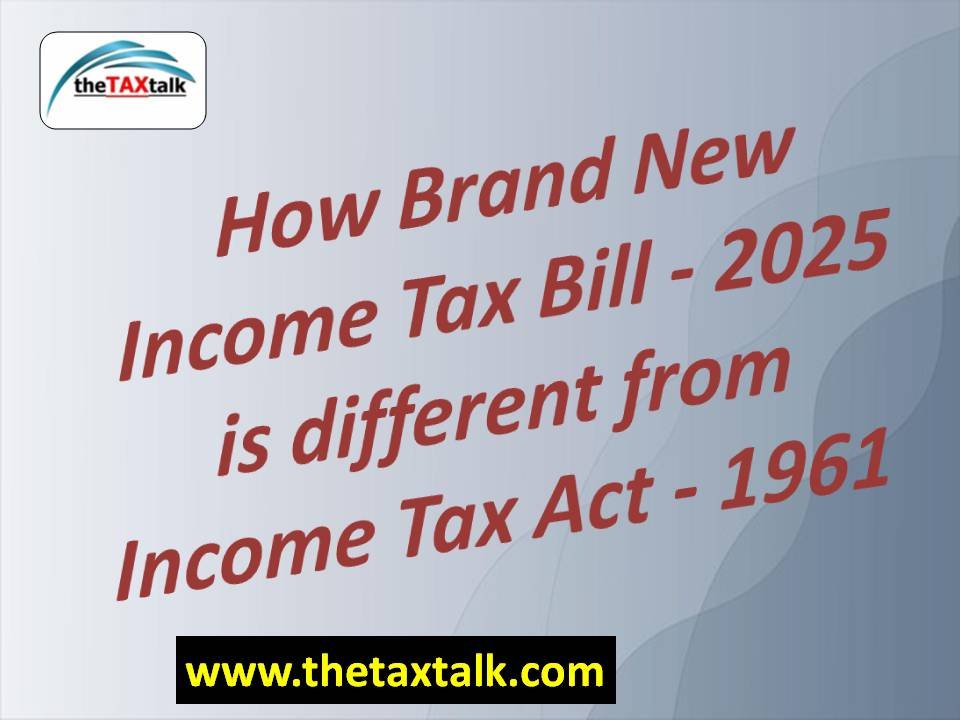![]()
How Brand New Income Tax Bill – 2025 is different from Income Tax Act – 1961
The Union Finance Minister, Nirmala Sitharaman, has proposed a new Income-tax Bill, 2025 proposing to repeal and replace the Income-tax Act, 1961. This effort is to make the Act concise, lucid and easy to read and understandable which will help in reducing disputes, litigations and provide clearer tax certainty to tax payers.
Key highlights:
1. New Income Tax Bill has 536 clauses, 16 Schedules and 23 Chapters.
2. New Income Tax Bill to be applicable with effect from 1 April 2026.
3. The concept of previous year and assessment year in the present Income tax Act to be replaced by the term “tax year” as defined in Clause 3 of the Income Tax Bill which shall be the twelve months period of the financial year commencing on the 1st of April.
4. Definition of “Accountant” under Clause 515(3)(b) of the New Income Tax Bill to remain the same as earlier and covers only Chartered Accountants.
5. Old Tax Regime continues in the new Income Tax Bill as deductions currently available under Chapter VI-A of the present Income Tax Act are still available in the new Income Tax Bill under Chapter VIII vide Clauses 122 to 154.
6. New Tax Regime rates & provisions u/s 115BAC(1A) of the Income Tax Act covered under Clause 202 of the Income Tax Bill.
7. Tax Deduction at Source (TDS) Sections of present Income Tax Act Viz. Section 192 to 196 are covered under Clause 393 of the New Income Tax Bill.
8. Tax Collection at Source (TCS) Sections of Income Tax Act viz. 206C are covered under Clause 394 of the New Income Tax Bill.
9. Tax Audit u/s 44AB of the Income Tax Act to be governed by Clause 63 of the New Income Tax Bill. Furthermore Clause 63 of the New Income Tax Bill reiterates that tax audit shall be conducted by Chartered Accountants only.
10. Rebate currently governed by Section 87A of the Income Tax Act covered under Clause 156 of the new Income Tax Bill.
11. Virtual digital assets have been included in the definition of property to be counted as a capital asset of the assessee.
12. Various provisions have been provided in tabular format such as tax deducted at source (TDS) provisions, presumptive taxation rates, deductions from salary, assessment time limits among others.
13. Income not forming part of total income has now been moved to schedules to simplify the statute.
14. Due dates for ITR filing to remain the same in the new Income Tax Bill viz. Individuals – 31st July, Company – 31st October, Tax Audit Cases – 31st October, Transfer Pricing Cases – 30th November, Revised Return – 31st December [9 months from the end of relevant tax year or before the completion of assessment whichever is earlier]
15. A major shift from the existing law is the delegation of certain powers to the Central Board of Direct Taxes (CBDT). The new bill empowers the CBDT to introduce such schemes independently, reducing bureaucratic delays and making tax governance more efficient.


